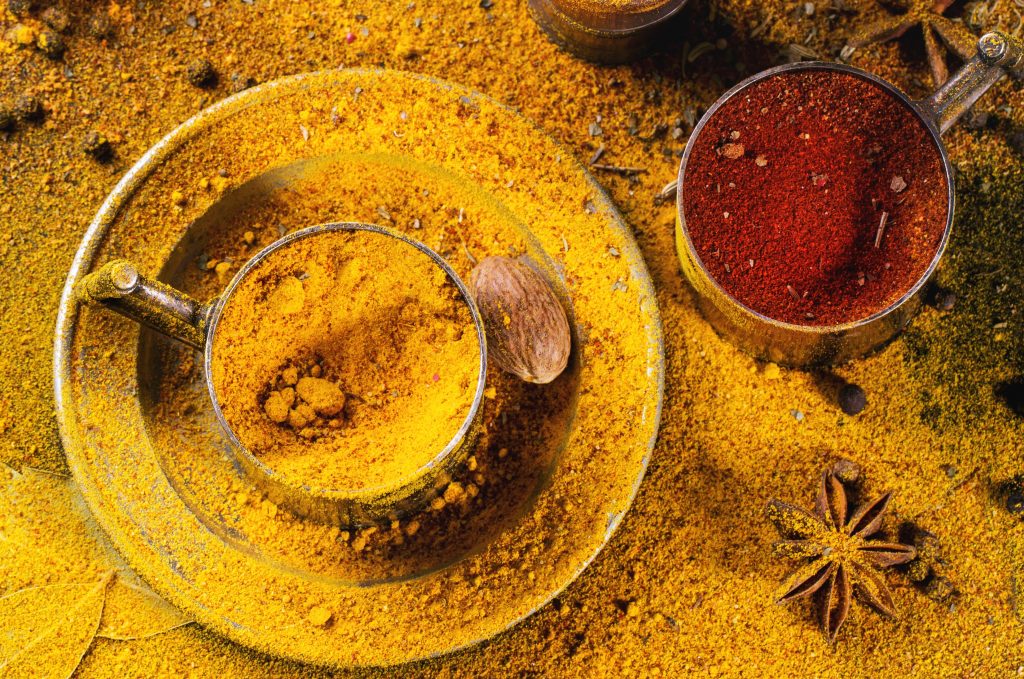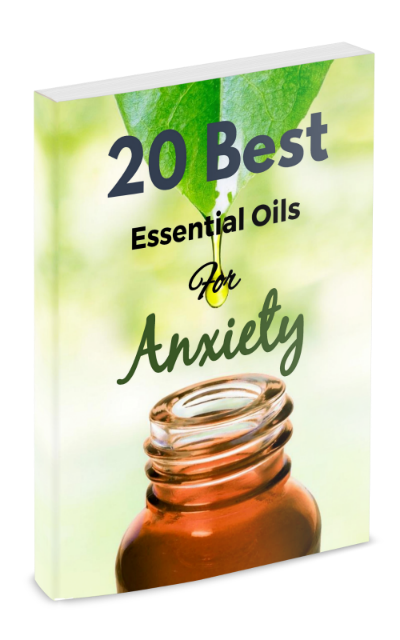Turmeric essential oil has a spicy and warming character. It is reminiscent of ginger, with gentle woody undertones. Turmeric oil is good for calming and grounding, relaxation and balance.
Part of the ginger family, turmeric used as spice, dye, and to create turmeric oil. The plant is native to the hot and humid climate of southern Asia, and it’s also a very popular and important plant in Indian cultures.
The Vivid Yellow of Turmeric
Turmeric is a rhizomatous plant, meaning its stem grows under the ground instead of above it. The part of the plant that grows above the ground – the branches with the leaves and yellow flowers, can grow to be forty inches tall.
The most interesting part of the turmeric is the rhizome. It is bright yellow in color, and it’s often ground to create a powder that’s widely used in Indian cuisine. Makers of essential oil extract the essential oil of turmeric from the rhizome generally using steam distillation.

Turmeric Essential Oil for the Mind:
Turmeric works by gently putting the body back into balance. Turmeric essential oil is energizing and promotes a sense of well-being.
Turmeric Essential Oil Helps Relieve Depression Caused By:
- Ongoing, persistent stress.
- A heavy, burdened heart.
Blending Turmeric Essential Oil for Other Depressions:
- Ginger and Lemon: Acts as supportive mind tonic.
- Cinnamon and Orange: Encourages relaxation and lifts spirits.
- Mandarin and Lemon: Calms the heart and mood.
- Lemon and Grapefruit: Refreshes the spirit. Balances emotions.
Turmeric Essential Oil for the Body:
Turmeric oil has a strong anti-inflammatory effect, and it can also help relieve pain. These properties make it a good choice for dealing with muscle and joint pain. It’s also used to help people dealing with arthritis.
For the digestive system, turmeric oil is used to bring balance, especially when there’s a problem with excessive gas. Turmeric is also known for its beneficial effect on the liver.
Skincare products include the essential oil of turmeric for its anti-oxidant qualities. People affected by male-pattern baldness can also try to use turmeric oil to prevent or slow down further hair loss.
Medical science is researching turmeric for a variety of medicinal uses, most importantly in fighting colon cancer. It is also researched for its anticonvulsant properties which might help treat epilepsy. It might also help in preventing neurological diseases.
Turmeric in Ancient History
Turmeric has a long history of usage in India. Archaeologists found residues of turmeric in pots dating as far as 2500 B.C. Both the Ayurvedic and the Siddha medical systems use turmeric.
Indian culture considers turmeric sacred. It is often part of important ceremonies. In some parts of India, the groom ties a string dyed with turmeric paste around the bride’s neck. The dyed string signifies the status of the person as married, in the same manner as wedding rings do in Western cultures. In the Tamil festival Pongal, locals offer the turmeric plant to the sun god.
Turmeric in Modern History
Medieval European cuisine used turmeric as a substitute for saffron, a much more expensive spice at the time. At the time, turmeric was known in Europe as “Indian saffron.”
Turmeric caught the attention of Nicholas Culpeper, the legendary English botanists who lived in the seventeenth century. In his book The Complete Herbal, he gave this description:
“Of Turmerick, hot in the third degree, opens obstructions, is profitable against the yellow jaundice, and cold distemper of the liver and spleen, half a dram being taken at night going to bed in the pulp of a roasted apple, and if you add a little saffron to it, it will be the better by far.”
Turmeric Essential Oil Cautions
People with slow blood coagulation, kidney stones, and low blood pressure should be cautious when using turmeric oil. People undergoing cancer therapy should check with their doctor if they use turmeric oil.
Oil of turmeric can cause photosensitivity, so avoid sunlight when using it. Also, perform a skin patch test before using directly on the skin to determine whether it will cause an adverse reaction.
People taking anti-coagulants and blood-thinners should avoid turmeric essential oil. People with gallbladder issues should also avoid it. Using turmeric essential oil during pregnancy or while nursing is not advised.


